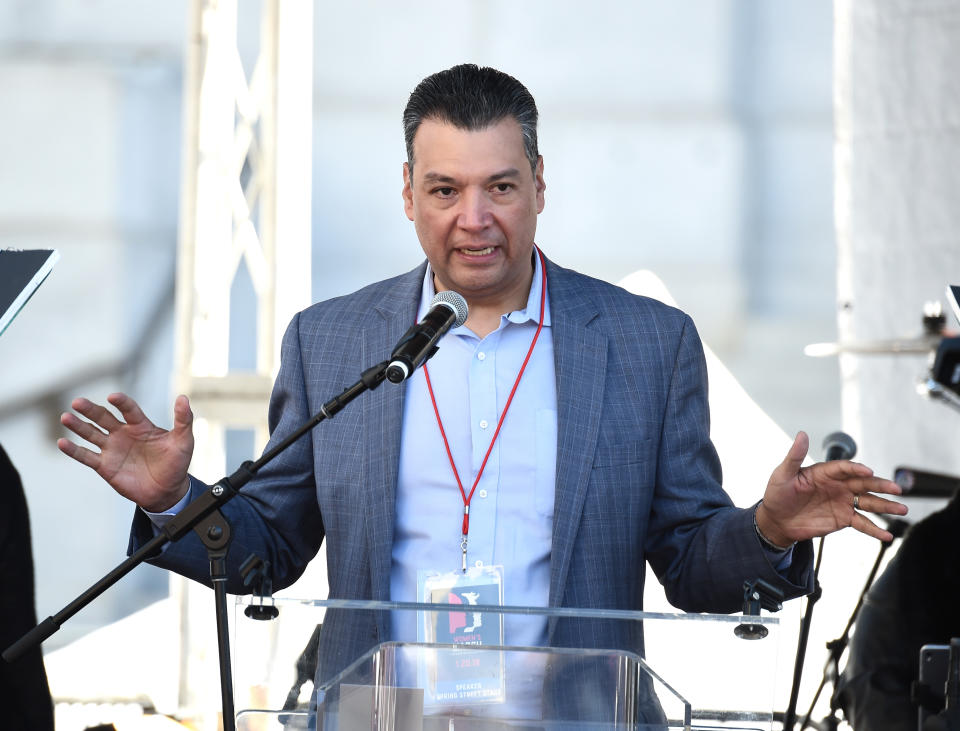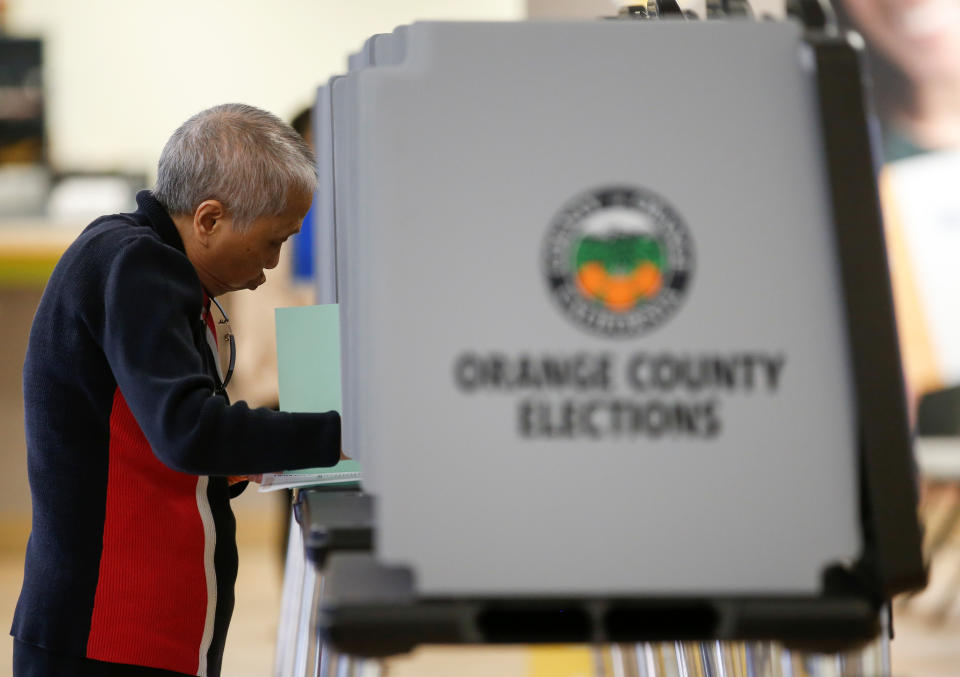California elections chief to voters: 'Don't believe everything you read...on Facebook'
As threats of foreign interference in the 2020 elections loom large, state officials are doing everything in their control to make sure Super Tuesday runs as securely and safely as possible.
California unveiled a new voting system ahead of its primary election, but the state still requires residents to use paper ballots or a voter-verified paper trail to ensure there aren’t massive technical glitches, according to Alex Padilla, California’s secretary of state and its head elections official.

“California leads the nation from the security requirements we have on voting systems and the testing review certification process for voting systems that every county has to abide by before conducting the election. We prohibit internet connectivity of our voting systems, making it impossible to systematically hack or rig the election,” he told Yahoo Finance in an interview.
He added: “And even with all that, every county is required to conduct a post election audit after every election to ensure both the accuracy and the integrity of the results.”
‘Don’t believe everything you see on the internet’
This focus on election security comes amid recent reports that Russians have been attempting to meddle in the 2020 presidential elections — showing particular support for both Senator Bernie Sanders and President Donald Trump.
“I think where we all as citizens need to be more mindful is...don’t believe everything you see on the internet or everything that you read in your Twitter feed or on Facebook,” Padilla cautioned.

“The recent reports of Russian efforts to interfere with the 2020 election while technically and maybe news, it's certainly not a surprise. It's not the first time. We've been seeing this consistently, since the 2016 election cycle.”
Social media giants have drawn ire from political leaders and citizens alike, for their overwhelming laissez-faire approach to policing foreign interference during the 2016 elections. While Twitter has banned all political ads, Facebook exempts politicians from its fact-checking system — allowing them to run ads with false information.
With a record 20.6 million Californians registered to vote on March 3, Padilla anticipates polling place wait times will be longer than normal. And with the ongoing spread of COVID-19, and the first two deaths reported in the U.S., Padilla has repeatedly urged residents to vote early, though he said there “are no indications of any disruptions” to the primary.
________
Melody Hahm is Yahoo Finance’s west coast correspondent, covering entrepreneurship, technology and culture. Follow her on Twitter @melodyhahm.
Read more:
'Unique experience with wealthy candidates': Why Bloomberg will have a tough time in California
Why neighborhood social network Nextdoor banned national politics
Board member Sarah Friar: Walmart will be a great company for the next 100 years
Golden Globes highlight tension between big tech and Hollywood
How Disney and Apple are challenging Netflix’s binge-watching model